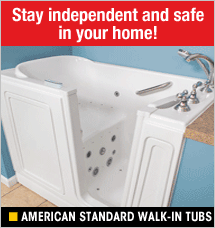Dollar Sense
Five Biggest Insurance Mistakes to Avoid And Tips for Saving $$

With the economy still sluggish we're all looking to save a buck here and there. It's important to regularly re-evaluate your insurance needs, to make sure that changes in your life are reflected in your coverage. You may find you are insuring items you no longer own or you are over-insuring in other areas. You may even have riders on your homeowners policy for things you no longer own, like jewelry or antiques. Take some time to review what you need and what you don't. You could end up saving money, and at the very least, protect what you value.
The Insurance Information Institute reminds us of five insurance mistakes to avoid, and some tips to safely cut the cost of coverage.
- Homeowner Insurance.Many homeowners confuse real estate and rebuilding value. It makes no sense to insure a home for its real estate value, even though it is cheaper. The problem is, with home values down in many parts of the country, the value is far less than the cost to rebuild. So if your home is destroyed by fire and you have insured only the value of the home, you will be out of luck when you try to rebuild. Chances are your policy will only cover a fraction of what you need.
Instead, III.org recommends you raise the coverage to the rebuilding value, and reduce your cost by raising your deductible. An increase from $500 to $1,000 can save you up to 25% per year.- Policy shopping.Price is not the most important criterion. In these uncertain times, check out the soundness of the company itself. Also check out the customer service to make sure it doesn't begin and end when they get your signature on the policy.
Instead, check the financial health of the company with an independent rating agency. Talk to friends and family to find out their experiences with a company. Choose an insurer that is known for excellent customer service and responsiveness at claims time.- Flood insurance.Flood insurance is something you generally need to purchase separately from your homeowner policy or rental policy. Contact the National Flood Insurance Program or check with your private insurer. Even if you are not in a flood zone, you should know that 25 percent of all floods occur in low risk areas.
Instead of crossing your fingers and hoping for the best, check with Floodsmart.gov. You can find your risk of flood there. If you are new-home shopping, you'll need to factor the cost of this coverage into your housing budget.- Auto Insurance. You see the commercials every day, advertising bare bones coverage. But that means you are likely to pay more out of pocket if you are sued. Keep in mind, our society grows more litigious every day so these costs can be daunting. The recommendation of the insurance industry as well as consumer groups is to have a minimum of $100,000 of bodily injury protection per person and $300,000 per accident.
Instead, do your shopping for a high quality but affordable policy. Ask for a higher deductible to keep the cost down. And if your car is older and less expensive, consider dropping collision/comprehensive coverage. And if you are thinking of purchasing a new car, consider the insurance that make and model will require.- Rental insurance.If you think your landlord is responsible for your belongings in the event of a problem, think again. Landlords are generally responsible for the property, not your belongings. A renters policy covers not only your possessions, but also additional living expenses in the event you have to move out of your house. Also, it covers you if someone is accidentally injured in your home. Suppose a guest trips and breaks a foot on your patio. He or she can submit medical bills directly to your insurer. A renters policy will also cover your legal defense and possible court judgments up to the limits of the policy.
Instead of not getting renters insurance, get it, but check into all discounts available. Multiple policies with the same insurer, discounts for deadbolts, fire extinguishers, and alarms will all save you money as well as increasing your safety.
SIDEBAR: What's in Your Storage Locker?
Do you have belongings in a storage locker? One in ten American homes utilizes this convenience. Most storage facilities require that patrons have insurance for the full value of the property stored there, and to prove it by presenting a copy of a homeowners or renters policy. If you are not sure if you have this coverage, take a look at your policy or give your agent a call.
You can also buy insurance through the storage facility. Generally a storage business will limit the value of the contents you can store (often this is $20,000 maximum), depending on the size and cost of your locker. You might be able to request an increase in the upper limit, or ask for an exclusion. Storage insurance, like homeowners or renters insurance will likely not cover damage by flooding, earthquakes, mold, mildew, vermin, or poor maintenance. Depending on your insurer, your coverage for goods stored off-premises may be limited to 10 percent of the value of your overall homeowners policy.
It's a good practice when you get a storage locker to create a detailed list of what you have there, and update it as you add or remove items. That way if you have a claim for damages or theft, the claim process will be expedited. The Insurance Information Institute has free Web-based home inventory software, Know Your Stuff. The program walks you through your home room by room and allows you to enter important data such as purchase price, serial numbers, etc. You can also upload photos and scanned receipts and appraisal forms.
Teresa Ambord is a former accountant and Enrolled Agent with the IRS. Now she writes full time from her home, mostly for business, and about family when the inspiration strikes.




























































